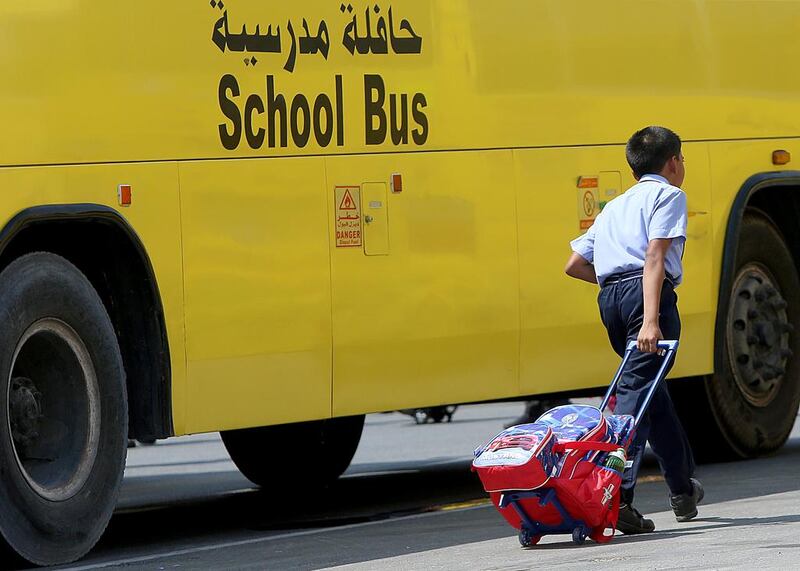A new round of government-run inspections for private schools will weed out those that are performing poorly and failing their pupils, headteachers said.
Education leaders responded to the news on Wednesday that private schools, along with government schools, would be the focus of a new regime aimed at improving standards. Hussain Al Hammadi said British and American schools and others would have to show their standards are up to scratch.
It followed the announcement earlier this week that government schools across the country would be unified to follow one single curriculum, and that English would be more widely taught.
The Emirati School Model will see the Ministry of Education and Abu Dhabi Education Council-run schools run the same.
Yesterday, some headteachers said they welcomed greater scrutiny to deliver better on English, maths and science in particular.
Clive Pierrepont, director of communications at the private operator Taaleem, which runs nine schools in the UAE, claimed some that use the titles 'British' and 'American' do not follow those curriculums or their standards.
“Private schools are already under intense scrutiny with regular inspections by the education authorities. Vulnerable schools are the ones that purport to claim that they follow a certain curriculum and are not," he said.
__________
Read more
[ Private schools to face greater scrutiny amid nationwide shake-up ]
[ More emphasis on science and English in government schools shake-up ]
[ President announces plans to unify education in all government schools ]
__________
He pointed to a study that suggested up to 70 per cent of schools that report to be teaching the American curricula are not actually accredited by any state standards body in the United States.
“We are regularly inspected by a team of experienced educators. We also have external appraisals and accreditation from overseas," he said.
“It’s the ones that are purporting to be quasi-British schools or quasi-American schools, that are the ones that are going to be under pressure because they might not be meeting the standards that the Ministry of Education will set.”
In May of this year, Adec announced that 23 private schools are banned from registering new pupils because of poor performance. Almost half followed either the American or British curriculum.
“British schools have set standards to follow, but if you look at American standards unless they follow a US state standard, then they can issue high school diploma saying that they graduated which is virtually worthless," he said.
“Internationally accredited schools should have nothing to fear. It is schools that claim to be offering something that they are not that should be concerned. We often deal with very upset parents who apply to our schools and whose sons and daughters have been at one of these schools – they came with reports of straight A’s but when you assess the students for attainment and progress – they are somewhat below their grade standard."
Rajendran Padmanabhan, head of operations of the Abu Dhabi Global Indian International School in Abu Dhabi, agreed that those that barely follow the curriculums of those home countries would not fare well.
“Private schools such as our and those that follow international standards should not be affected at all," he said.
Brendon Fulton, principal of Dubai British School, said he understood that some schools do not "undertake any form of external testing".
He said they are "essentially benchmarking their students performance against nothing, and therefore the grades can be meaningless".
"Parent disappointment and frustration then comes in when their children move to other institutions that do benchmark, and perhaps they are not doing as well as previously thought," he said.
A major concern among officials and parents is the need of more than 60 per cent of government school pupils to go through additional 'foundation' courses to improve their maths and English, before their attend university, because their education is not up to university standards.
“Our curriculum is fully aligned to the National Curriculum of England and so students sit terminal GCSE and A-Level examinations – providing an uncompromising benchmark," Mr Fulton said.
"Students who return to their home countries during their formal schooling are also able to transition seamlessly into their new schools. If schools in Dubai are not appropriately benchmarking, then there would be no qualifiable way of ensuring this.
“I see the need for this initiative, however, I would hope that decision makers are pragmatic enough to accept that schools such as DBS, with external academic outcomes significantly above the UK and international averages... should not need to undergo such scrutiny.”






